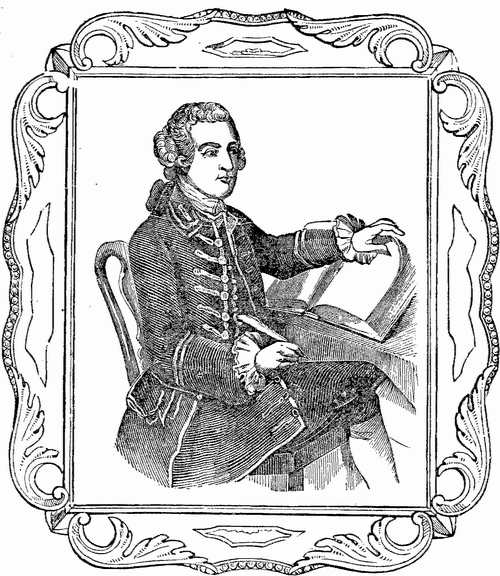
John Hancock

 T had been the practice in every quarter of British America for the officers of
the customs to allow merchants and shipmasters to enter in the custom-house
books only a part of their imported cargoes, and to
land the remainder duty-free. To this practice, which became so inveterate that
the colonists regarded the advantage accruing from it as a right, rather than an
indulgence, the commissioners resolved to put a stop.
T had been the practice in every quarter of British America for the officers of
the customs to allow merchants and shipmasters to enter in the custom-house
books only a part of their imported cargoes, and to
land the remainder duty-free. To this practice, which became so inveterate that
the colonists regarded the advantage accruing from it as a right, rather than an
indulgence, the commissioners resolved to put a stop.
A sloop called the Liberty, belonging to Hancock, having arrived at Boston laden with wine from Ma. deira (June 10, 1768), the captain, as usual; proposed to the tidewaiter who came to inspect the cargo, that part of it should be landed duty-free; but, meeting a refusal, laid violent hands upon him, and, with the assistance of the crew, locked him up in the cabin till the whole cargo was carried ashore. The next morning he entered a few pipes of the wine at the customhouse, as having formed all his lading; but the commissioners of the customs, insisting that the entry was deceptive, caused the sloop to be arrested. To secure the capture, it was proposed that the vessel should be removed from the wharf and towed under the guns of the Romney man-of-war; and,. by the assistance of the Romney's boats, this was accordingly performed, in spite of the opposition of a great assemblage of people, who, finding their remonstrances disregarded, assaulted the custom-house officers with a violence that had nearly proved fatal to their lives. (June 12.)
On the following day, the populace, again as sembling before the houses of the collector, comptroller, and inspector-general of the customs, broke their windows, and then, seizing the collector's boat, dragged it through the town and ~urned it on the common. Their violence, whether satiated or not, was checked at this point by the flight of the commissioners and other officers of the customs, who, learning that renewed assemblages of the people were expected, and believing or affecting to believe that further outrages were meditated against themselves, hastily left the place, and took refuge, first on board the ship-of-war, and afterwards in Castle William. (June 13.)
The city, meanwhile, resounded with complaints of the insult that was offered to the inhabitants in removing the sloop from the wharf, and thus proclaiming apprehensions of a rescue. These complaints were sanctioned by the assembly, who declared that the criminality of the rioters was extenuated by the irritating and unprecedented circumstance of the seizure; but added, nevertheless, that, as the rioters deserved severe punishment, they must beseech the governor to direct that they should be prosecuted, and to proclaim a reward for their discovery. The rioters, however, had nothing to fear; nor was any one of them ever molested.
A suit for penalties was afterwards instituted against Hancock in the Court of Admiralty; but the officers of the crown, finding it beyond their power to adduce sufficient evidence of facts, which, though everybody knew, nobody would attest, abandoned the prosecution and restored the vessel. The conduct of the officers in taxing the people, by implication, with the purpose of rescue, was generally condemned. It was, indeed, remarked by the few who ventured to defend it, that a rescue had actua By taken place eigh.. teen months before. But to this the advocates of the people replied, that the popular temper had undergone a change since then,-as was verified by the fact that no subsequent rescue had been attempted;-a fact the more certain, though the less significant, as.in reality no seizure in the interim had been made.
Unluckily, about a month after the arrest of Hancock's vessel, a schooner, which was seized with a smuggled cargo of molasses, and left at the wharf under the care of the custom-house officers, was. boarded during the night by a numerous body of men, who easily overpowered and confined the officers, and carried the cargo on shore. The inhabitants in general were greatly scandalized to find their. recent declarations so completely falsified; and the Selectmen of Boston, sending for the master of the schooner, ordered him to surrender the molasses directly, under pain of the displeasure of the town. He obeyed this injunction without a moment's hesitation.